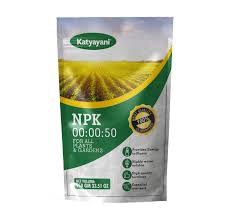
Nov . 17, 2024 05:21 Back to list
20-20-20 fertilizer bulk manufacturer
Understanding 20-20-20 Fertilizer A Comprehensive Guide for Bulk Buyers
Fertilizers play a crucial role in modern agriculture, providing essential nutrients to crops and ensuring healthy growth, optimal yield, and high-quality produce. Among the various types of fertilizers available in the market, 20-20-20 fertilizer is particularly popular due to its balanced nutrient profile. As a bulk manufacturer of 20-20-20 fertilizer, understanding its composition, application, benefits, and the buying process is essential for both manufacturers and consumers.
What is 20-20-20 Fertilizer?
20-20-20 fertilizer is a water-soluble, balanced, all-purpose fertilizer that contains equal parts of the three primary macronutrients nitrogen (N), phosphorus (P), and potassium (K), each at 20%. This balanced nutrient ratio makes it suitable for a variety of plants, including vegetables, fruits, flowers, and ornamental plants. The formulation is particularly favored in hydroponics and greenhouse production because it facilitates quick nutrient absorption, promoting rapid growth and healthy plant development.
Composition and Benefits
1. Nitrogen (20%) Nitrogen is vital for plant growth as it contributes to the development of chlorophyll, the green pigment responsible for photosynthesis. It also promotes vigorous foliage growth, ensuring that plants can maximize their energy production.
2. Phosphorus (20%) Phosphorus is essential for energy transfer within the plant, playing a critical role in photosynthesis and respiration. It supports root development, flowering, and fruiting, making it paramount for crop yield and quality.
3. Potassium (20%) Potassium is crucial for the overall health of plants. It regulates various physiological processes, including water uptake, enzyme activation, and photosynthesis. Adequate potassium levels enhance the plant's resilience to stress, diseases, and adverse weather conditions.
The balanced combination of these three nutrients in 20-20-20 fertilizer allows it to cater to the dietary needs of different plants throughout various growth stages, making it an ideal solution for farmers and gardeners.
Application Methods
20-20-20 fertilizer can be applied through several methods, including
20-20-20 fertilizer bulk manufacturer

- Soil Application Incorporating the fertilizer into the soil before planting ensures that nutrients are available to the plant roots as they develop
.- Foliar Feeding Applying the fertilizer as a foliar spray allows for quick absorption through the leaves, especially beneficial during the active growing season.
- Fertigation In hydroponics and drip irrigation systems, 20-20-20 fertilizer can be dissolved in water and delivered directly to the plants, promoting efficient nutrient uptake.
Considerations for Bulk Purchase
For those interested in purchasing 20-20-20 fertilizer in bulk, several factors should be taken into account
1. Quality and Certification Ensure that the bulk manufacturer adheres to quality standards and certifications. This includes compliance with agricultural regulations and safety guidelines.
2. Formula Variability While 20-20-20 is a standard formulation, some manufacturers may offer modified versions that include additional micronutrients such as magnesium, calcium, or sulfur. Consider your specific crop needs when selecting a product.
3. Pricing and Delivery Compare prices from multiple suppliers to ensure competitive rates. Inquire about shipping and handling options, as well as any discounts for large orders.
4. Availability and Packaging Options Check the availability of the fertilizer, especially during peak growing seasons. Look for suppliers that offer a variety of packaging options, from bulk bags to smaller quantities, to meet your requirements.
Conclusion
In summary, 20-20-20 fertilizer is a highly effective and versatile solution for enhancing plant growth and productivity. As a bulk manufacturer, it is vital to offer high-quality products that meet the nutritional needs of diverse crops. For farmers and gardeners, understanding the benefits and applications of this balanced fertilizer can lead to improved agricultural outcomes. By carefully considering the purchasing process and selecting a reputable supplier, growers can maximize their investment and achieve greater success in their agricultural endeavors.
-
Premium Organic Manure Compost for Eco Gardens
NewsAug.01,2025
-
Organic 10-10-10 Fertilizer | Balanced Plant Nutrients
NewsJul.31,2025
-
Premium Amino Acid Fertilizer | Rapid Plant Growth Booster
NewsJul.31,2025
-
10 10 10 Fertilizer Organic—Balanced NPK for All Plants
NewsJul.30,2025
-
Premium 10 10 10 Fertilizer Organic for Balanced Plant Growth
NewsJul.29,2025
-
Premium 10 10 10 Fertilizer Organic for Balanced Plant Growth
NewsJul.29,2025
